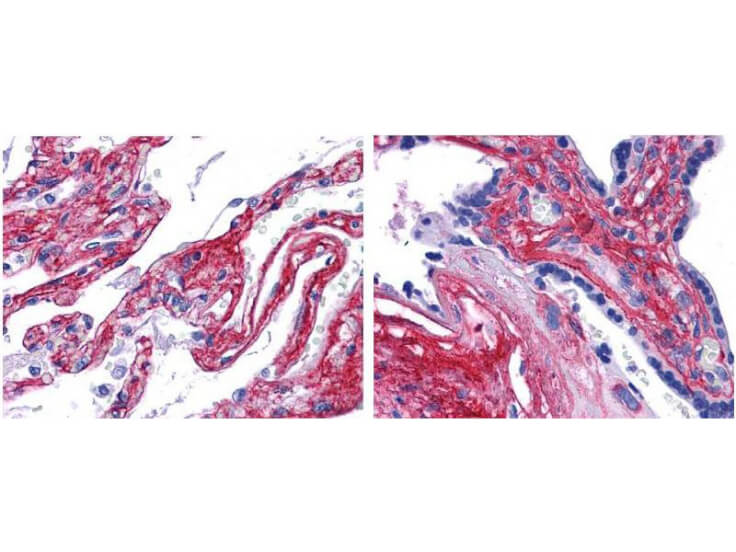Collagen Type V Antibody
Rabbit Polyclonal
$50.00 to US & $70.00 to Canada for most products. Final costs are calculated at checkout.
Product Details
Target Details
Application Details
Formulation
Shipping & Handling
What were the immunogens for the collagen antibodies?
The immunogens for the collagen antibodies are the respective purified solubilized native collagen proteins (tropocollagens).
In what format are the collagen antibodies provided?
The collagen antibodies are provided in liquid format at a concentration of around 1 mg/mL (Absorbance 280 nm).
In what buffer are the collagen antibodies provided?
0.02 M Potassium Phosphate, 0.15 M Sodium Chloride, pH 7.2 with 0.01% (w/v) Sodium Azide.
Are the antibodies specific to the reduced or non-reduced (native) proteins?
The collagen antibodies are specific to the native 3D epitopes found on the collagen native collagen protein. The collagen antibodies may have no reactivity to reduced collagen.
How was the reactivity of the antibodies tested? Was cross-reactivity to other collagens tested?
Each antibody was tested by immunoblot against each type of collagen (Type I – VI). Due to the close association of collagen proteins, cross-reactivity to other collagens may be observed. The optimal experimental conditions should be determined to minimize cross-reactivity in your application.
What are the recommended storage conditions for collagen antibodies?
The recommended storage temperature for collagen antibodies is -20°C. Please be sure to add glycerol 1:1 before freezing. We recommend making aliquots for best stability. The antibodies are stable for several weeks at 4°C.

